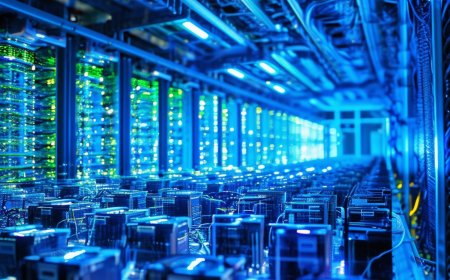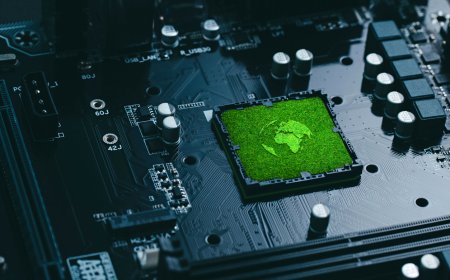Understanding Economic Sustainability: A Detailed Exploration
Unearth the secret to Economic Sustainability and explore how it is reshaping our world. This comprehensive guide provides insights into sustainable business practices, social impact, and the future of the green economy

Introduction
Economic sustainability, a concept that was once an afterthought for businesses, has quickly become a pivotal aspect of strategic planning and decision-making. It is not just about making a profit anymore; it’s about securing the future of our planet while doing so. But what exactly is economic sustainability, and how can it be achieved? Let's delve into this comprehensive guide to understand and unlock the secret to economic sustainability.
What is Economic Sustainability?
Economic sustainability refers to the strategic practices employed by businesses to ensure their growth and profitability while considering the environmental and social impacts of their operations. It is an integral part of the sustainability triad, which includes environmental, social, and economic sustainability. This concept argues for a balanced approach where economic development and environmental conservation are not mutually exclusive but can coexist harmoniously.
The Importance of Economic Sustainability
In today's business landscape, economic sustainability has grown from a niche concern to a mainstream necessity. Companies are under increasing pressure from consumers, investors, and regulators to demonstrate their commitment to sustainable practices. Embracing economic sustainability not only improves a company's reputation but also boosts its bottom line by driving efficiency, innovation, and long-term growth.
The Pillars of Economic Sustainability
Economic sustainability is built upon three key pillars:
-
Profitability: This refers to the financial viability of a business. Companies must generate sufficient revenue to cover costs and invest in future growth.
-
Environmental Stewardship: Companies must minimize their environmental footprint by reducing waste, conserving resources, and investing in renewable energy.
-
Social Responsibility: Businesses must contribute positively to society by ensuring decent working conditions, fair trade, and community development.
How to Achieve Economic Sustainability
Achieving economic sustainability requires a shift in mindset and a commitment to long-term goals. Here are five key steps to achieve it:
-
Integrate Sustainability into Business Strategy: Incorporate sustainability goals into your business model and strategy. This includes setting clear, measurable objectives and regularly tracking progress.
-
Embrace Renewable Energy: Invest in renewable energy sources like wind, solar, and hydroelectric power. This not only reduces your carbon footprint but also cuts energy costs in the long run.
-
Promote Circular Economy: Adopt a circular economy approach where waste is minimized, and resources are reused and recycled wherever possible.
-
Engage Stakeholders: Involve all stakeholders, including employees, customers, investors, and the community, in your sustainability journey. Engagement fosters accountability and drives collective action.
-
Measure and Report: Regularly measure and report on your sustainability performance. This creates transparency and trust with your stakeholders and helps identify areas for improvement.
The Future of Economic Sustainability
The future of economic sustainability is promising, thanks in part to the growing awareness and commitment from businesses, governments, and individuals worldwide. There is a growing trend towards sustainable finance, with investors increasingly favoring companies that demonstrate strong ESG (Environmental, Social, Governance) performance. Technology is also playing a crucial role, with advancements in AI, IoT, and blockchain driving efficiency and transparency in sustainable operations.
Conclusion
Unlocking the secret to economic sustainability is no easy feat. It requires vision, commitment, and a willingness to challenge conventional wisdom. But the rewards are worth the effort. Economic sustainability is not just about securing our planet's future—it's about building resilient businesses that thrive in a rapidly changing world. By embracing economic sustainability, companies can create value for all stakeholders and play a pivotal role in driving a prosperous, green economy.
Disclaimer: The image(s) featured in this article are for illustrative purposes only and may not directly depict the specific concepts, situations, or individuals discussed in the content. Their purpose is to enhance the reader's understanding and visual experience. Please do not interpret the images as literal representations of the topics addressed.
What's Your Reaction?













































































































